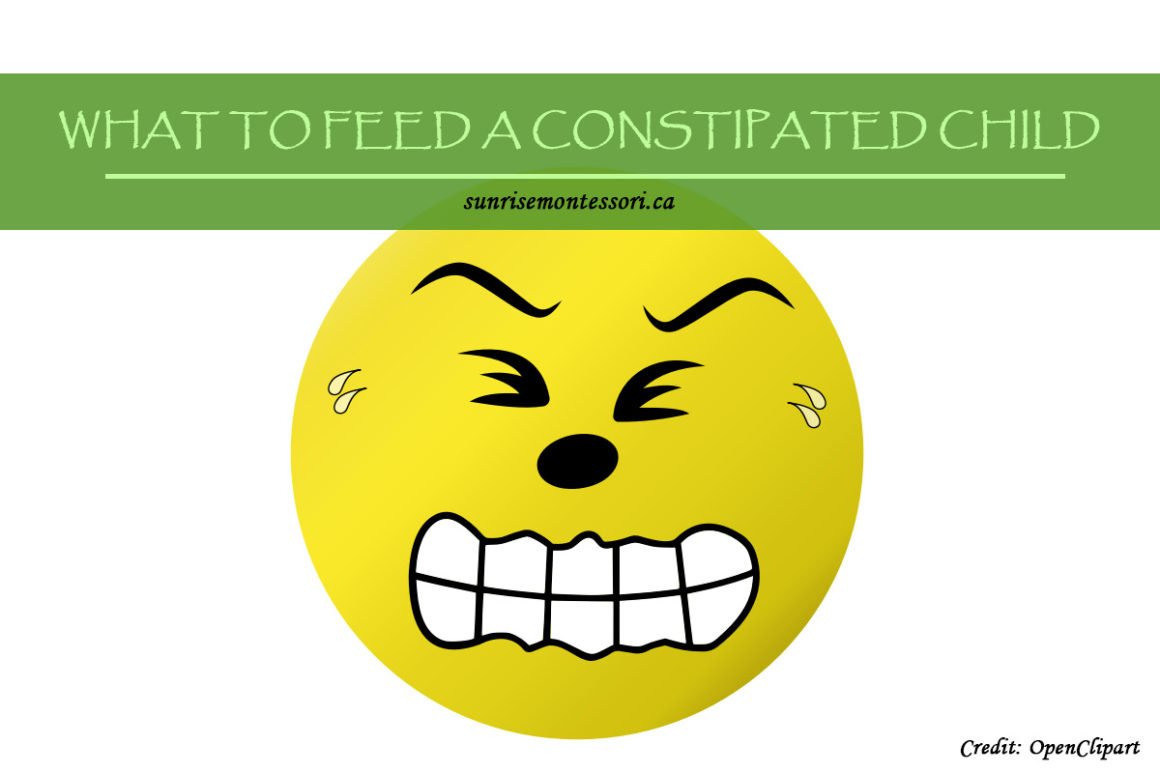Like adults, a child’s bowel pattern may differ from another child. While some children have bowel movements once or twice daily, others may take two or more days longer before passing a regular stool without any difficulty. For example, a child can have a regular bowel movement every three days without pain or discomfort.
Still, constipation can be a common problem with younger children. Constipation is not primarily about how frequent a child passes poo. It is about the difficulty of passing a stool, and can be identified by the stool itself. The Bristol Stool Scale (also sometimes called the Myers Stool Scale) is a good identifier of problems with your child’s poo. If your child has Type 1 stool (with hard separate lumps that somewhat resemble tree nuts in size), they are likely constipated. The good news is, it is only temporary and can be easily treated.
Simple dietary changes, such as consuming more fibre-rich fruits and vegetables and keeping the body hydrated, helps relieve your child’s constipation symptoms. In severe cases, the pediatric gastroenterologist may prescribe laxatives to treat your child’s constipation.
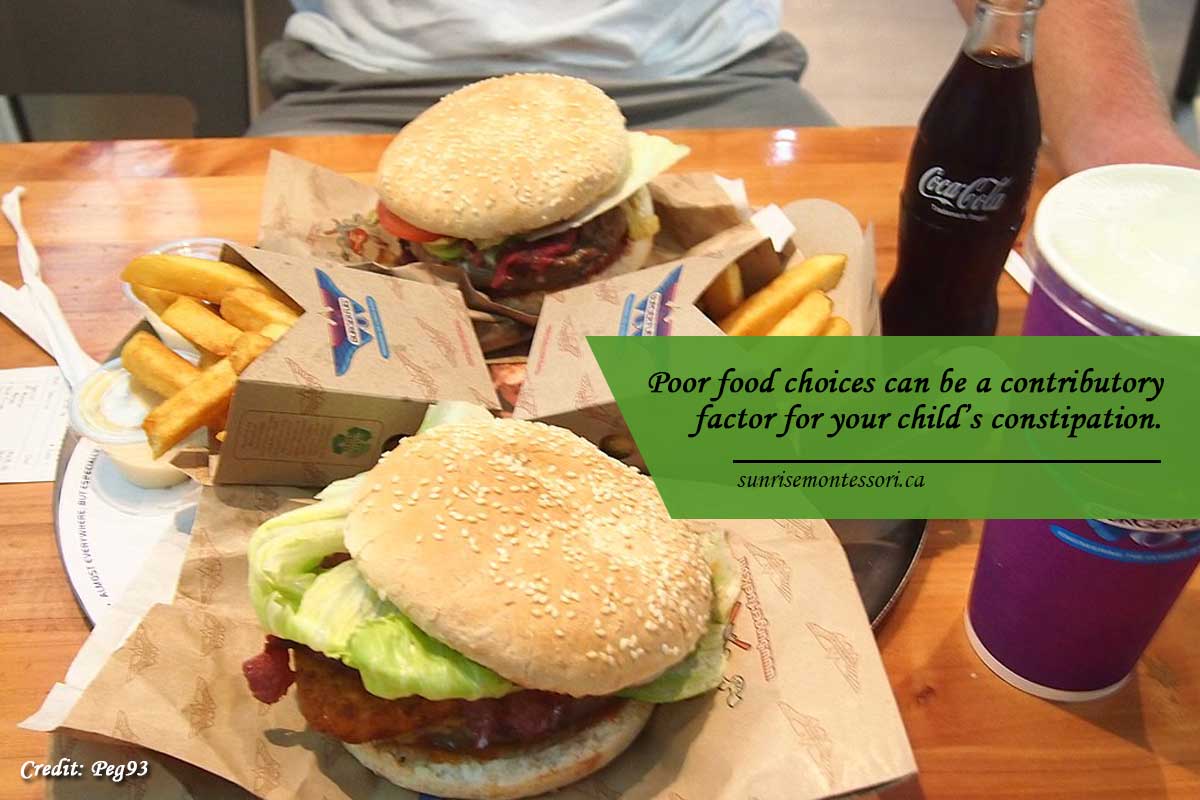
What Triggers Childhood Constipation?
To treat constipation, it is essential to know its root causes to successfully reduce your child’s risk. Let us take a look at some of the common contributory factors of constipation in children.
- Diet
Children love fast foods, junk foods, and sugary beverages. These foods are not only high in fat but low in fibre. Also, a sudden switch from an all-liquid diet to solid food can cause constipation in infants. Not drinking enough water could also increase the risk. - Toilet training
A child trained too early to use the toilet is more likely to rebel and hold in stool. It usually happens when your kid is not ready. As a result, the whole ordeal becomes a battle of wills. Ignoring the urge could quickly turn into an involuntary habit that would be difficult to change. - Withholding
A child may resist the urge of bowel movement and withhold passing stool for various reasons. Some children who experienced constipation withhold to avoid the pain and discomfort from passing a hard stool. Another common reason is that the child might be dealing with independence and control issues, a problem common between children two and five years. Other children are too busy playing that they refuse to take a break. Lastly, some children feel too anxious or embarrassed to use a public toilet, especially when away from home or in summer camps. - Changes in daily routine
Sometimes, travel, stress, or extreme weather can have a significant impact on your child’s normal bowel function. Constipation is also likely to occur in preschool kids during the first few days of school. - Medical conditions
In rare cases, your child’s constipation is a sign of anatomic malformation or a digestive system issue, such as irritable bowel syndrome (IBS), a condition that is triggered by stress or eating fatty or spicy foods. Among the symptoms of IBS in children constipation or diarrhea, gas, and stomach pain. - A sedentary lifestyle
Children love to spend hours watching television and playing video games instead of going outside and engaging in physical activities. A lack of exercise can prevent food from moving properly through the intestines.
Make sure to treat your child’s constipation immediately before it becomes worse. The stool inside his intestinal tract would likely become larger, drier, firmer, making it more difficult and painful to pass. Your child would also be more likely to hold back due to pain and discomfort.
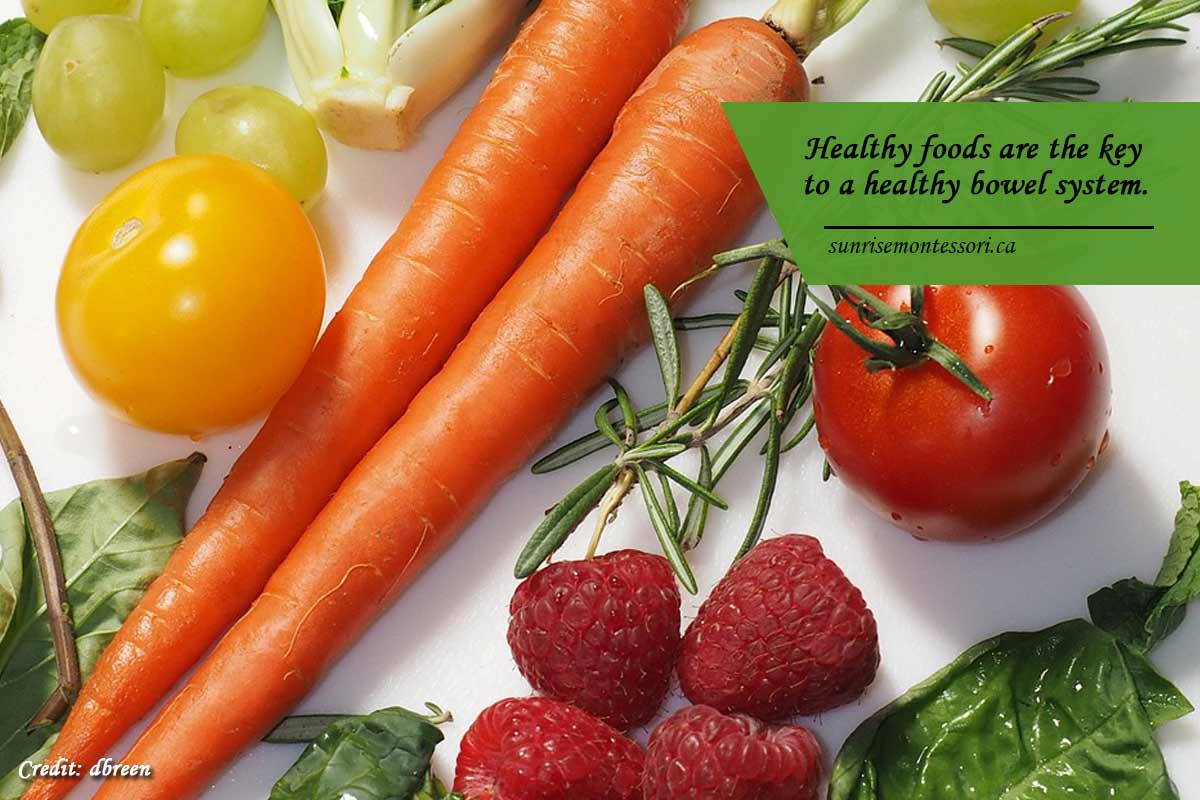
Foods That Can Relieve Constipation
What your child eats may cause or relieve constipation. Food is a vital factor in bowel regularity; that is why it is essential to choose wisely when feeding your child.
Fibre-rich foods help the body digest and eliminate human waste. Less fibre intake could result in constipation. Unfortunately, many children prefer eating unhealthy snacks, such as chips and chocolates. That is why it is critical for parents must provide their children with the right amount of metabolic fibre, and encourage them to hydrate properly every day. Feed your child with fresh fruits and vegetables, whole-grain bread, and high-fibre cereals.
Here are some fibre-rich foods that can help your constipated child have more regular bowel movements:
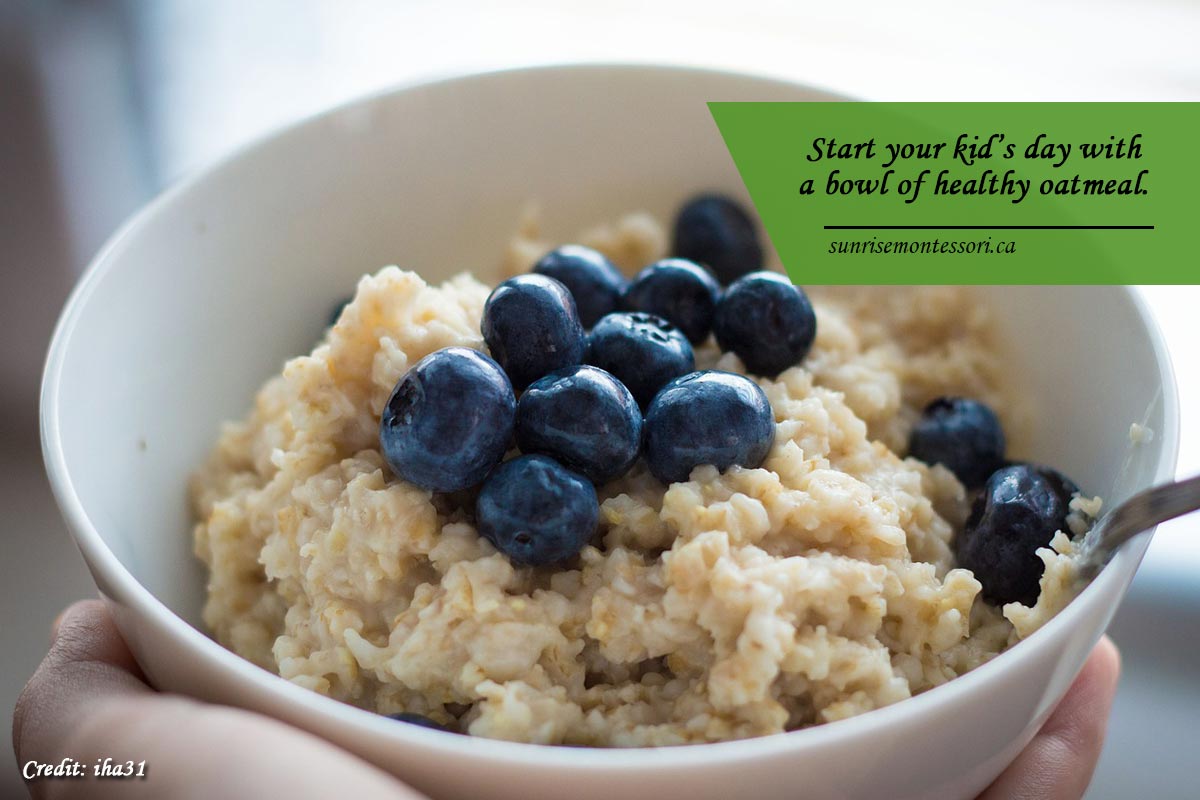
- Oatmeal
Oats are naturally rich in fibre packed with protein, iron, zinc, complex carbohydrates, thiamine, and selenium. Feeding your kid with a cup of cooked oats provides about 166 calories and four grams of fibre. - Prunes
Loaded with fibre, potassium, and vitamin A, prunes make a good remedy for your child’s constipation. It effectively relieves constipation due to sorbitol, which is known for its natural laxative effect in the body. If prunes are not available, dried plums make a great alternative due to its insoluble and soluble fibre content and high level of disease-fighting antioxidants. - Pears
Pears contain natural laxatives that allow easy stool movement through the intestine. In addition to its 5.5 grams of dietary fibre content, it is also an excellent source of Vitamin C.
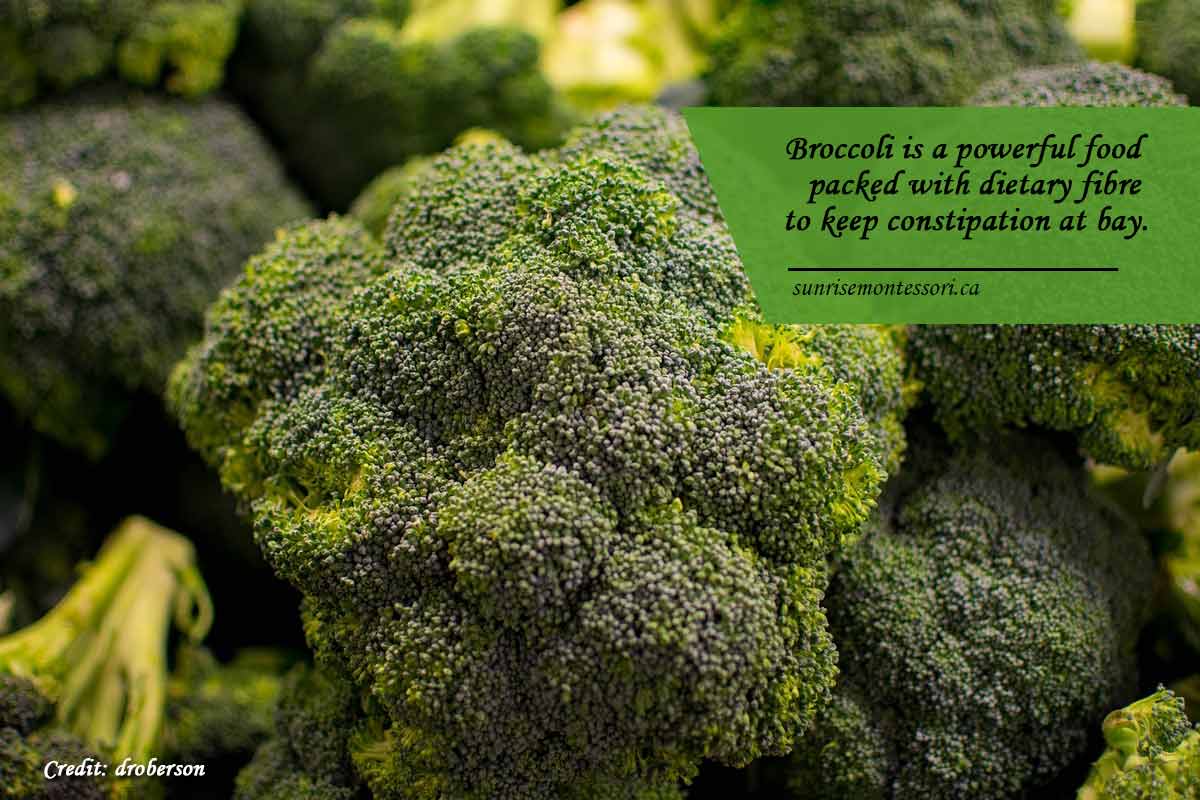
- Broccoli
In addition to its cancer-preventing properties, broccoli is full of fibre. Health experts recommend eating it raw. Cooking reduces its fibre content. If you prefer eating it cooked, simply steam, broil, or bake broccoli to maintain its fibre content. A cup of boiled broccoli has about 5.1 grams of fibre. - Beans and legumes
Aside from their high dietary fibre content, beans and legumes also contain an excellent source of iron and protein. Make sure to include the following in your child’s diet:- A cup of kidney beans contains 14 grams of fibre.
- A half-cup of boiled navy beans has about 10 grams of fibre.
- A half-cup of pinto, black, or garbanzo beans has between 6.2 and eight grams of fibre.
- A cup of chickpeas has 11 grams of fibre, and is also packed with iron, plant protein, and vitamin B6.
- Carrots
Eating raw carrots proves to be an effective remedy to poor bowel movement as it contains a healthy amount of fibre. Cooking or juicing it loses its fibre content.
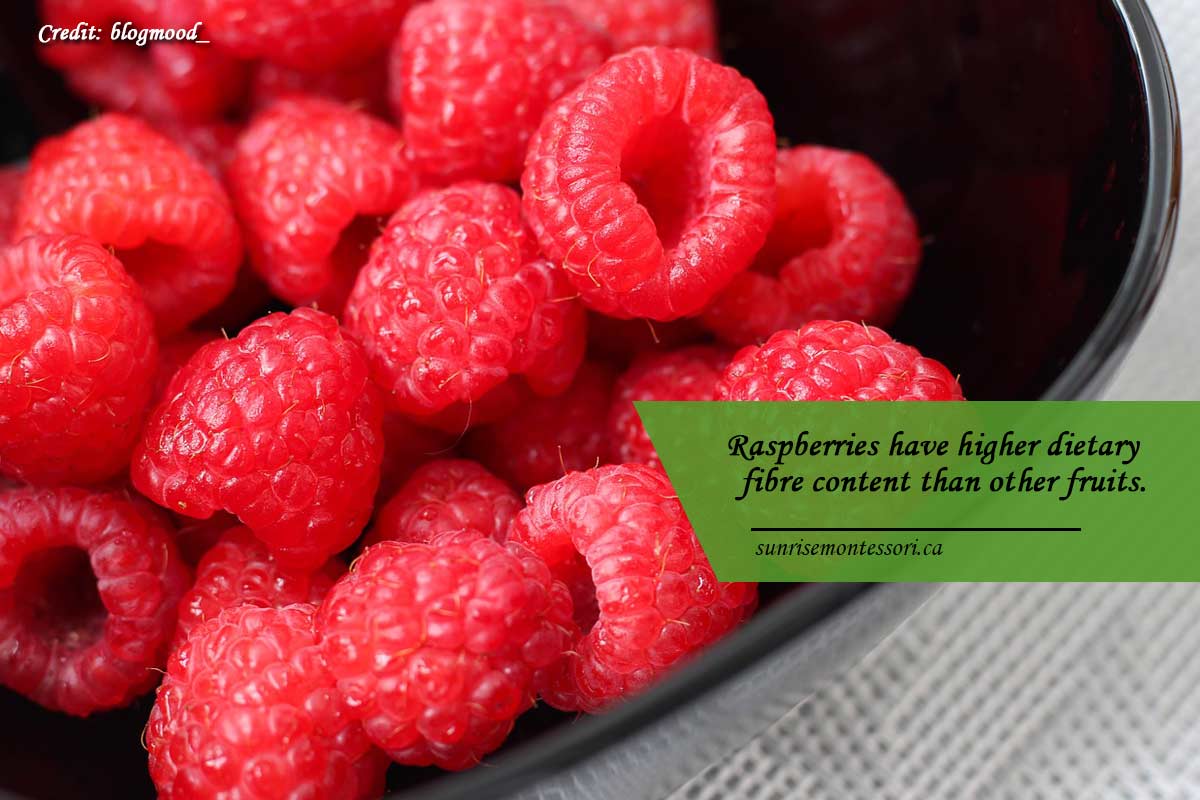
- Raspberries
In addition to the high percentage of dietary fibres, raspberry is rich in antioxidants and Vitamin C, which helps improve your child’s immune system and fight inflammation. Fresh raspberries contain about four grams of fibre per one-half cup.
Constipation affects about 30 to 35 percent of children, with toddlers and preschool-age children being the largest age group. Difficulty passing stool can affect the child’s mood and how well they participate in daily activities. That is why, at Sunrise Montessori School, we make sure to serve fresh, nutritious meals (breakfast, lunch, and snacks) and promote physical activities and exercises to ensure that our young students are healthy in body and mind.
Call us now at (905) 477-2833 about our toddler program and admission, or visit our private Montessori school in Markham to learn more.

